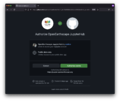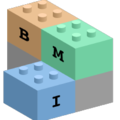Mpiper sandbox
Example of autogenerating an image gallery
This is working now, thanks to Albert!
Pre-conference Software Carpentry bootcamp
CSDMS will host a pre-conference one-day Software Carpentry bootcamp on Monday May 22th, 2017, led by Mariela Perignon and Mark Piper.
The objective of the bootcamp is to teach basic programming skills that will be useful for scientific computing and model development. This is an intensive, hands-on workshop, during which certified instructors will cover basic elements of:
- the Unix bash shell,
- Python programming and NumPy, and
- Github for version control.
Our instructors are earth scientists and have familiarity with the CSDMS framework, such that lessons and examples will be targeted toward relevant problems in your field. The bootcamp intentionally precedes the CSDMS meeting, so the skills participants develop should be useful in the clinics during the meeting.
Note:
- Registration is open till April 1st (or until program fill) and is handled through the 2017 meeting site.
- The bootcamp is capped at 30 participants (first paid first serve), and it has a $30 registration fee.
- Participant will be responsible for cost / organization of their extra day of hotel accommodation and dinner. Costs will not be reimbursed.
- We will cover coffee, continental breakfast and lunch during the bootcamp.
Post-conference hackathon
CSDMS will host a post-conference one-day hackathon on Friday May 26th, 2017, organized by Eric Hutton and Mark Piper.
A hackathon is loosely defined as a social gathering with the goal of collaboratively creating usable software. Here, we’ll hack BMIs.
The motivation is that a BMI-ed model can be converted into a CSDMS component, which allows it to be called from PyMT and included in WMT, thereby increasing the visibility and use of the model.
Each attendee is invited to bring a model of their choice1 to wrap with a BMI. The model can be in any CSDMS-supported language (C, C++, Fortran, Java, Python). Attendees should be proficient in the language of their chosen model. Attendees will be required to submit their model code to CSDMS staff before April 1, so that the hackathon organizers have time to familiarize themselves with the code. The attendees will work together to add BMIs to models. CSDMS staff will guide participants and provide technical assistance. The ultimate goal of the hackathon is to get each participant's model wrapped with a BMI. This is a lofty goal. The more likely outcome is that each participant will have a good start on getting their model wrapped.
Before the hackathon, attendees are expected to have read:
- BMI description (https://csdms.colorado.edu/wiki/BMI_Description)
- BMI documentation (http://bmi-python.readthedocs.io)
and have attended a BMI clinic in the current or in an earlier year. Attendees need a laptop with either a working compiler for the language of their choice or an account on beach. To make the most of the hackathon, attendees should attempt to prepare their model for a BMI by refactoring it into initialize (sets the initial state of the model), update (advances the model by one time step), and finalize (shuts down the model) subprograms.
1 If an attendee doesn’t have a model to wrap, but does express a language preference, we will provide them with a simple model in their language that they can wrap; however, attendees who bring their own model will have precedence if space is an issue.
Note:
- Registration is open till April 1st (or until program fill) and is handled through the 2017 meeting site.
- The hackathon is capped at 12 participants (first paid first serve), and it has a $30 registration fee.
- Participant will be responsible for cost / organization of their extra day of hotel accommodation and dinner. Costs will not be reimbursed.
- We will cover coffee, continental breakfast and lunch during the hackathon.




